
Johann Reuchlin was a German Catholic humanist and a scholar of Greek and Hebrew, whose work also took him to modern-day Austria, Switzerland, and Italy and France. Most of Reuchlin's career centered on advancing German knowledge of Greek and Hebrew.
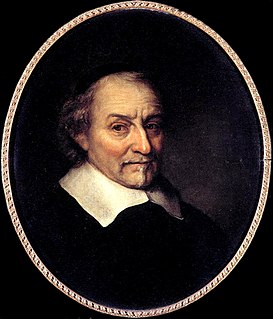
Joost van den Vondel was a Dutch poet, writer and playwright. He is considered the most prominent Dutch poet and playwright of the 17th century. His plays are the ones from that period that are still most frequently performed, and his epic Joannes de Boetgezant (1662), on the life of John the Baptist, has been called the greatest Dutch epic.
The tree of life is a diagram used in various mystical traditions. It usually consists of 10 nodes symbolizing different archetypes and 22 lines connecting the nodes. The nodes are often arranged into three columns to represent that they belong to a common category.
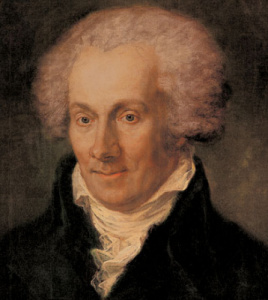
Karl von Eckartshausen was a German Catholic mystic, author, and philosopher.

Bibliotheca Philosophica Hermetica or The Ritman Library is a private Dutch library founded by Joost Ritman. The Bibliotheca Philosophica Hermetica brings together manuscripts and printed works in the field of Hermeticism, more specifically the 'Christian-Hermetic' tradition. It is located in the center of Amsterdam.
Charles Robert Cecil Augustine Allberry was an English Egyptologist and Coptic scholar. A friend of novelist C. P. Snow, Allberry was a model for Roy Calvert in Snow's novels The Light and the Dark and The Masters, in the Strangers and Brothers series.
Hugo of Santalla was a significant translator of the first part of the twelfth century. From Arabic originals, he produced Latin translations of texts on alchemy, astronomy, astrology and geomancy.
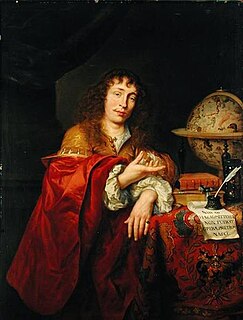
Theodor Kerckring or Dirk Kerckring was a Dutch anatomist and chemical physician.
Titus of Bostra was a Christian theologian and bishop. Sozomen names Titus among the great men of the time of Constantius.
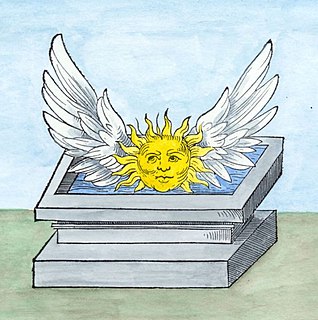
The Rosary of the Philosophers is a 16th-century alchemical treatise. It was published in 1550 as part II of De Alchimia Opuscula complura veterum philosophorum (Frankfurt). The term rosary in the title is unrelated to the Catholic prayer beads; it refers to a "rose garden", metaphoric of an anthology or collection of wise sayings.
Johannes Bredenburg (1643–1691) was a Rotterdam wine merchant and weaver who was a member of the Collegiants. The philosopher Spinoza had joined the Collegiants and his ideas became the source of a division in the membership so that they broke into two parties. The Spinozist party was led by Bredenburg and the opponents by Frans Kuyper. These two parties were reunited on the death of their leaders.

Johannes Jacobus Willebrordus (Joost) Zwagerman was a Dutch writer, poet and essayist. Among his teachers was the novelist Oek de Jong.
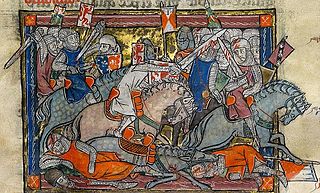
The Rochefoucauld Grail is a four-volume 14th-century illuminated manuscript. Three volumes were formerly Amsterdam, Bibliotheca Philosophica Hermetica, MS 1; the fourth volume is divided between the Bodleian Library in Oxford and the John Rylands Library in Manchester. It contains the Lancelot-Grail cycle in French prose, the oldest and most comprehensive surviving version of the legend of King Arthur and the Holy Grail. The leaves are about 405 mm by 295 mm, and are written in two columns, by a number of scribes.
Johann Baptist Großschedl von Aicha was a German nobleman, alchemist and esoteric author. The German "von Aicha" is a later supposition from the Latin "ab Aicha" on his publications, which may be related to Aiglsbach in Bavaria and the "Grossehedl von Perckhausen und Aiglspach" nobility, who originally came from Regensburg.
Adam Haslmayr was a German writer, who was the first commentator of the Rosicrucian Manifestos. He called the revelation of Paracelsus the "Theophrastia Sancta".
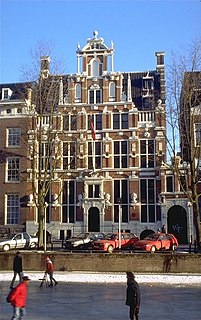
The House with the Heads is a large canal house on the Keizersgracht 123 in Amsterdam, named after the six ornaments shaped as heads, which are on the facade. The house is a rijksmonument and is listed on the Top 100 Dutch heritage sites.
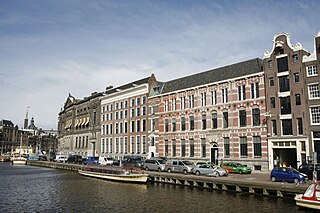
The Bibliotheca Rosenthaliana is the Jewish cultural and historical collection of the University of Amsterdam Special Collections. The foundation of the collection is the personal library of Leeser Rosenthal, whose heirs presented the collection as a gift to the city of Amsterdam in 1880. In 1877 the city library had become the University Library, so the Bibliotheca Rosenthaliana was essentially given to the University. The Bibliotheca Rosenthaliana has since expanded to become the largest collection of its kind in Continental Europe, featuring manuscripts, early printed books, broadsides, ephemera, archives, prints, drawings, newspapers, magazines, journals, and reference books.
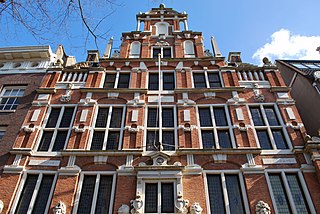
The Embassy of the Free Mind is a museum, library and platform for free thinking, inspired by the philosophy of the Bibliotheca Philosophica Hermetica collection. The museum focusses on the European culture of free thinking of the past 2.000 years, with Hermetic wisdom as the source of inspiration: insight into the connection between God, cosmos and man. This connection is reflected in the Hermetic, alchemical, astrological, magical, mystical, kabbalistic and Rosicrucian texts and images in the collection.











